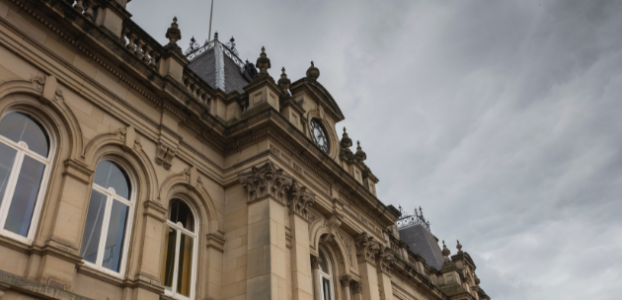At both our London and Manchester Launches, questions were asked about how the Centre will engage with the vast range of organisations and interests that operate in the local economic growth field.
Whilst we don’t have all the answers to this question just yet – it’s a work in progress – we do have some ideas about how to maximise the Centre’s reach, and to work productively with those already thinking about these issues, and making policy on the ground.
Firstly, it’s about placing stakeholder engagement in the What Works Centre for Local Economic Growth at the heart of the Centre’s programme of work. As Henry has said on many occasions: ‘this is not an ivory tower exercise’.
Secondly, it’s about knowing your target audience. Whilst the list of objectives, individuals and organisations to engage grows longer by the day, from the outset we’ve been explicit that our priority is to influence those organisations and individuals who take decisions about local economic growth policy in their local areas. More specifically this includes:
- Local authorities (Leaders, Cabinet Members and Chief Executives);
- LEPs (Board members and senior staff).
Given their importance in the policy arena we’ll also be working closely with national government – politicians, civil servants and special advisers – and with relevant Select Committees and All Party Parliamentary Groups (e.g. Local Growth, Local Enterprise Partnerships and Enterprise Zones).
Third, it’s about having a mix of engagement approaches – ranging from the reactive to the proactive – that enable our target audience to keep up-to-date with our activities, and to become involved in specific activities as appropriate. Some of the approaches the Centre will use include:
- Events – organising practitioner roundtables, workshops and meetings across the country in conjunction with local partners and national public events to disseminate our work to a wider audience.
- Contacts and Networks – build on the extensive set of contacts and networks that the three partners already have. As the project evolves, our networks will become larger and more targeted as more stakeholders become involved with the work.
- Branding – the Centre already has its own brand which is used across the website, event materials, social media and all communications collateral associated with it. This brand will remain consistent during the project and will be an important tool in helping us to develop the profile of the Centre.
- Website – the website is a vital tool for helping us promote our work. It is an adaptable resource which will evolve to accommodate the expanding programme of work to ensure that it is showcased in the clearest, most accessible way possible. The website also has a built in blog which currently hosts opinions and comment from the Centre’s Director and Deputy Directors. Over time the blog will develop into a platform for the exchange of ideas, with external contributors drawn from the User and Academic Panels as well as practitioners and policy-makers.
- Newsletter – through the website, as well as during events, we will offer the opportunity for interested individuals to receive emails which will provide a regular update on the Centre’s latest activity. Those who have attended events will be automatically subscribed, and there is a field at the bottom of every page on the website for anybody to sign up.
- Press – ensuring that journalists are kept up to date with the work of the Centre, and developing press stories that can be used to highlight the work the Centre is doing will be vital in raising the profile of the Centre with target stakeholders. The What Works Centre project team will ensure that existing and new media contacts are kept involved in the programme of work through regular meetings and telephone briefings with journalists in the target publications outlined above. We will also seek every opportunity to break into mainstream national press to raise the profile of the What Work Centre.
- Social media – Centre’s Twitter account @WhatWorksGrowth is already an important tool for communicating our day to day work to target stakeholders. It will be used to tell people about the work we are doing, publicise events and showcase coverage in the press.
This is just a start. As we develop the Centre’s work and engage with more and more policy-makers I’m sure we’ll have to refine and add to what we’re up to. But for now I think this provides a reasonable response to the question of ‘who and how will you engage with local and national policy-makers?’ If you have any thoughts and additions you’d like to suggest, as always get in touch.







